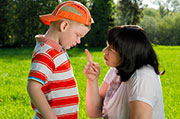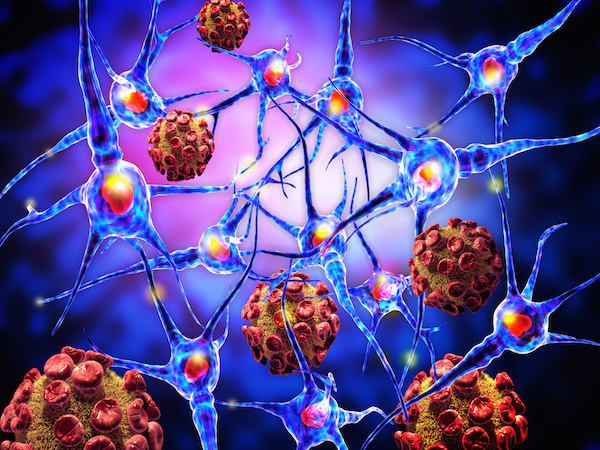
MONDAY, Aug. 5 (HealthDay News) — When the economy takes a dive, some mothers may start using harsher discipline with their children — particularly moms who carry a certain gene variation, new research suggests.
The study, of nearly 5,000 young U.S. children, found that when the economic recession hit in 2007, many mothers reported increases in “harsh parenting” — such as yelling at, threatening, slapping or spanking their child.
There were, however, some nuances, researchers report in the Aug. 5 online edition of the Proceedings of the National Academy of Sciences.
The pattern was seen only in mothers with a particular gene variant related to the brain chemical dopamine. And those women reported using more harsh discipline only at the start of the recession, when local unemployment rates were most rapidly rising.
Experts said that suggests it’s the onset of an economic downturn — and the fear of job loss — that may push some moms toward harsh discipline.
“We don’t have direct evidence of this, but we think it’s the fear, the anxiety over what’s coming,” said Irwin Garfinkel, one of the study authors and a professor at the Columbia University School of Social Work, in New York City.
“You see harsh parenting increase at the beginning of the recession, when unemployment rates were changing rapidly,” Garfinkel said. “But then it starts going down, even as unemployment rates remain high.”
What’s more, the study found, the connection between the recession and harsh discipline seemed limited to mothers who carried a “sensitive” variant of a gene called DRD2.
“The numbers did not change for mothers with the ‘insensitive’ variant,” Garfinkel said.
The DRD2 gene helps produce the brain chemical dopamine, which is involved in regulating mood and behavior. It’s far from certain, but scientists think that under times of significant stress, people with that gene variant may be more prone to reacting aggressively.
A child-abuse expert who reviewed the study said the gene findings are interesting, but not likely to have any immediate practical use. The other findings, though, could have real-world implications.
“This confirms previous research showing an increase in physical abuse during times of crisis,” said Jennifer Wolford, a doctor with the Child Advocacy Center at Children’s Hospital of Pittsburgh.
In one of those past studies, a team at the Pittsburgh center found an increase in child-abuse head injuries that coincided with the start of the recent recession.
The new findings, Wolford said, suggest that the sudden downward trend at the start of a recession — and the widespread uncertainty it causes — may be particularly important.
“Is it that time of uncertainty that’s more difficult for people than what actually happens afterward?” Wolford said. It’s not clear, but she said the findings highlight a need for social services for families and children — right at a time when policymakers may consider funding cuts.
“That is not the time when we should be cutting back,” Wolford said.
The findings are based on 4,898 children born in 20 U.S. cities between 1998 and 2000. Mothers were interviewed when their children were born and also at 1, 3, 5 and 9 years old. About 2,600 moms also gave saliva samples for gene testing. Three-quarters of the women were unmarried when they gave birth, and the study did not look at fathers’ parenting habits.
Just over half of the mothers carried the sensitive variant of DRD2, and in general, they reported increases in harsh discipline at a time when local unemployment rates and consumer confidence measures were at their steepest rates of change.
On the other hand, Garfinkel pointed out, once economic conditions stabilized and started to show small improvements, mothers with the sensitive gene were actually using harsh punishment less often than mothers with the insensitive variant.
He said that’s a prime example of the “orchid-dandelion” theory: People with the sensitive gene variant are like orchids — doing well under good environment conditions, and struggling under tough ones. The other people are like dandelions, holding fairly steady no matter what the environment is doing.
One question, according to Garfinkel, is how temporary increases in harsh parenting may affect children in the long run. “We don’t know yet if these short-term changes have long-term consequences,” he said.
The study also focused on harsh discipline, which falls short of the types of abuse that would be reported to social services, Garfinkel said. But he agreed with Wolford that the findings underscore the need for social services during economic hard times — and perhaps especially at the start of a recession.
More information
The Nemours Foundation has advice on child discipline.
Copyright © 2026 HealthDay. All rights reserved.

